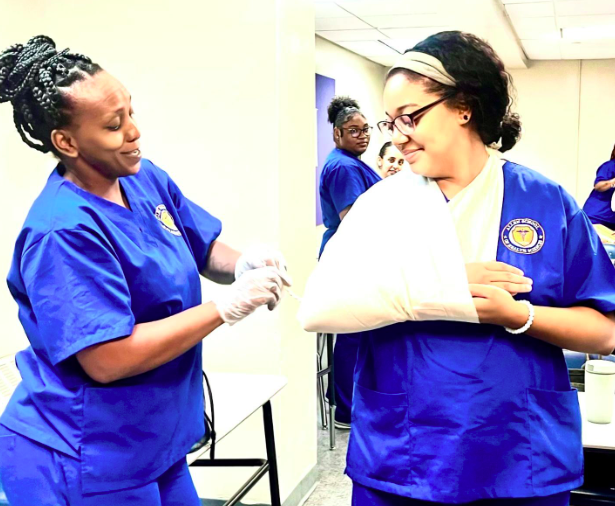
A Medical Assistant plays a crucial role in administering patient care by providing both clinical and administrative support to healthcare professionals. Here are some key ways in which a Medical Assistant administers patient care:
- Preparing Patients For Examinations: Medical Assistants greet patients, escort them to examination rooms, and prepare them for their appointments; This includes taking their vital signs, documenting medical history, and ensuring they are comfortable.
- Assisting With Procedures And Treatments: Medical Assistants may assist healthcare providers during various medical procedures and treatments; They may help with wound care, administer medications as instructed, perform basic laboratory tests, and assist with minor surgical procedures.
- Collecting And Preparing Specimens: Medical Assistants are often responsible for collecting and preparing specimens for laboratory testing. This may involve drawing blood, collecting urine samples, or performing other specimen collection procedures.
- Providing Patient Education: Medical Assistants play a vital role in educating patients about their conditions, treatments, and medications. An MA might explain post-procedure care instructions, provide information about managing chronic conditions, or offer guidance on lifestyle modifications.
- Administering Medications: Under the supervision of a healthcare provider, Medical Assistants may administer medications, including injections, as prescribed. An MA will ensure proper dosage, route of administration, and adherence to safety protocols.
- Maintaining Medical Equipment And Supplies: Medical Assistants are responsible for sterilizing and maintaining medical equipment, ensuring it is ready for use during patient care. An MA also monitors and restocks medical supplies, ensuring that examination rooms are adequately equipped.
- Coordinating Referrals And Appointments: Medical Assistants often assist with coordinating referrals to specialists or scheduling follow-up appointments. They communicate with patients, other healthcare facilities, and insurance companies to ensure a smooth transition of care.
- Documenting Patient Information: Accurate documentation is essential in healthcare. Medical Assistants maintain patient records, update medical histories, and enter relevant information into electronic health record systems. They assist in maintaining confidentiality and adhering to privacy regulations.
- Providing Emotional Support: Medical Assistants often interact closely with patients and their families. They offer empathy, compassion, and reassurance, creating a comfortable and supportive environment during patient care.
It is important to note that the specific tasks a Medical Assistant can perform may vary based on factors such as state regulations, the healthcare setting, and the supervising healthcare provider’s preferences. To learn more about how a Medical Assistant provides patient care and a career as a Medical Assistant, contact the Allen School of Health Sciences today! We are enrolling now for classes starting soon. www.allenschool.edu
